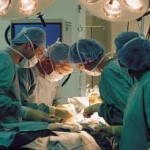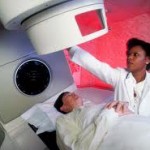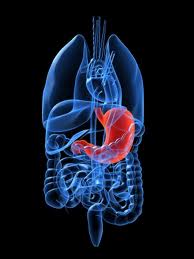Stomach cancer or also known as gastric cancer is a cancer that arises in the stomach, a muscular sac situated in the upper center of the abdomen underneath the ribs. The stomach is the body organ that receives and keeps the food and then facilitate in breaking down the food and digesting it.
The most common form of stomach cancer is the adenocarcinoma wherein the cells lying on the inside lining of the stomach start in producing mucus. People affected with stomach cancer are rarely found in the United States. Number of people detected with stomach cancer is also declining every year. There are parts of the world wherein stomach cancer is more frequently found and mostly in Japan.
What are the signs and symptoms of stomach cancer?
Signs and symptoms of stomach cancer may include the following.
- Feeling of tiredness or fatigue
- Feeling bloated right after eating
- Feeling full after eating even in just a small quantity
- Heartburn
- Nausea
- Upset stomach
- Stomach pain
- Vomiting
- Weight loss
If you are experiencing all of these signs and symptoms, see your doctor for proper examination.
What are the causes of stomach cancer?
Healthcare providers are not yet convinced of what really causes stomach cancer. But they are considering a diet high in smoked, salted and pickled foods may have an intense connection with stomach cancer. A number of people affected with stomach cancer have lessened since the use of refrigeration for preserving foods helped a lot.
Generally, cancer starts when there is an error that takes place in DNA cell. This is the mutation process that makes a reason for the cell to grow and divide rapidly and keep on existing while the normal cells would expire. The increasing in number of cancerous cells may form a tumor that can occupy the nearby tissues and may even extend all through the body.
What is the risk factors affecting stomach cancer?
There are factors that may increase the possibility of having stomach cancer and these are the following.
- A diet high in smoked and salty foods
- A diet with little fruits and vegetables
- Intake of foods contaminated with aflatoxin fungus
- If stomach cancer runs in the family
- Illness with Helicobacter pylori
- Pernicious anemia
- Smoking
- Stomach polyps
What are the treatments for stomach cancer?
The following are the treatment option for stomach cancer.
1.    Surgical procedure.
 The objective of surgery is to eliminate all of the stomach cancer and a margin of healthy tissue if possible. If the cancer cells in the stomach lining are on the early stage, the endoscopic mucosal resection can be use. This procedure is done by using endoscopy to remove the very small cancers restricted within the lining of the stomach. If only portion of the stomach are being infected by cancer, subtotal gastrectomy may be applied. Total gastrectomy may be applied if the whole stomach and some nearby tissue will be removed. The esophagus is then directly attached to the small intestine to let the food go through the digestive system. Eliminating part of the stomach through surgery can not cure the stomach cancer. However, it may help to alleviate the signs and symptoms of the rising of cancer cells in people affected with advanced stomach cancer. This surgery may have a possibility of infection and bleeding. There may also experience digestive problems if all or even part of the stomach will be removed.
The objective of surgery is to eliminate all of the stomach cancer and a margin of healthy tissue if possible. If the cancer cells in the stomach lining are on the early stage, the endoscopic mucosal resection can be use. This procedure is done by using endoscopy to remove the very small cancers restricted within the lining of the stomach. If only portion of the stomach are being infected by cancer, subtotal gastrectomy may be applied. Total gastrectomy may be applied if the whole stomach and some nearby tissue will be removed. The esophagus is then directly attached to the small intestine to let the food go through the digestive system. Eliminating part of the stomach through surgery can not cure the stomach cancer. However, it may help to alleviate the signs and symptoms of the rising of cancer cells in people affected with advanced stomach cancer. This surgery may have a possibility of infection and bleeding. There may also experience digestive problems if all or even part of the stomach will be removed.
 2.    Radiation therapy.
 Radiation therapy makes use of high-powered beams of energy like X-rays to destroy the cancer cells. Radiation therapy can be done before surgery to make the cancer cells get smaller so will be more easily to remove. Radiation therapy can also be done after having the surgical procedure to destroy the cancer cells that may stay around the stomach. Side effects of radiation therapy to the stomach are indigestion, diarrhea, nausea and vomiting.
Radiation therapy makes use of high-powered beams of energy like X-rays to destroy the cancer cells. Radiation therapy can be done before surgery to make the cancer cells get smaller so will be more easily to remove. Radiation therapy can also be done after having the surgical procedure to destroy the cancer cells that may stay around the stomach. Side effects of radiation therapy to the stomach are indigestion, diarrhea, nausea and vomiting.
 3.    Chemotherapy.
 Chemotherapy is the drug treatment that makes use of the chemicals to destroy cancer cells. Chemotherapy drugs pass through all over the body destroying the cancer cells that may possibly reach the other tissues. Chemotherapy can also be done before surgery to make the cancer cells get smaller and can be easily removed. Chemotherapy can also be done after surgery to destroy any cancer cells that might stay in the body. Chemotherapy is frequently combined with radiation therapy. But people with advanced stomach cancer and with rare types of stomach cancer like gastric lymphoma and gastrointestinal stromal tumors, chemotherapy can be done alone.
Chemotherapy is the drug treatment that makes use of the chemicals to destroy cancer cells. Chemotherapy drugs pass through all over the body destroying the cancer cells that may possibly reach the other tissues. Chemotherapy can also be done before surgery to make the cancer cells get smaller and can be easily removed. Chemotherapy can also be done after surgery to destroy any cancer cells that might stay in the body. Chemotherapy is frequently combined with radiation therapy. But people with advanced stomach cancer and with rare types of stomach cancer like gastric lymphoma and gastrointestinal stromal tumors, chemotherapy can be done alone.
 4.    Targeted therapy.
 Targeted therapy makes use of drugs that particularly attack the irregularities inside of the cancer cells. This treatment is being use in uncommon type of stomach cancer called gastrointestinal stromal tumor. Imatinib and sunitinib are targeted drugs used to treat the uncommon form of stomach cancer.
Targeted therapy makes use of drugs that particularly attack the irregularities inside of the cancer cells. This treatment is being use in uncommon type of stomach cancer called gastrointestinal stromal tumor. Imatinib and sunitinib are targeted drugs used to treat the uncommon form of stomach cancer.
Consult your doctor for proper evaluation to decide of what treatment preferences may be applicable of your present condition.
